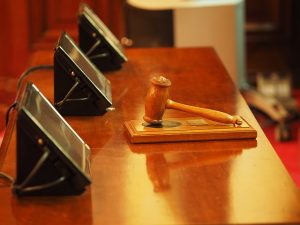 Nowadays brewing your own coffee is a relevant aspect of studying , which makes it important to buy the right coffee grinder for french press amazon sells online. Yes you read it right, a french press coffee maker is a perfect choice if you’re a law student who needs to drink coffee to perk up your energy level.
Nowadays brewing your own coffee is a relevant aspect of studying , which makes it important to buy the right coffee grinder for french press amazon sells online. Yes you read it right, a french press coffee maker is a perfect choice if you’re a law student who needs to drink coffee to perk up your energy level.
It’s quite understandable that there are instances when the drudgery of studying law can pull you down. An aromatic cup of perfectly coffee brewed can give you the energy boost you need. Yet for young adults like you who are looking to make a career out of studying different kinds of laws and relevant case studies, you also need to understand the art and science of coffee brewing. Otherwise, your future career as a coffee-drinking lawyer can be thwarted by potential stomach disorders like poor digestion, flatulence or at worst, ulcers or gastro-esophageal reflux disease (GERD).
Although we staunchly recommend the use of a French press coffee brewer, we also have to emphasize that using the right coffee grinder is equally important. Mainly because a French presser a.k.a. coffee plunger extracts coffee flavors and essential oils by way of direct immersion method. Since only a metal screen keeps the immersed coffee grind from getting into the water, the coffee grinder must produce coffee grinds with a coarse consistency and without “fines.” The latter refers to minute particles that can pass through the wire mesh and give the brew a silty quality. The wire mesh filters out only the coffee grnds; but not the essential oils and flavor molecules that give the Freench press brewed coffee an enlivening and aromatic taste.
 Anyway, brewed French press coffee is essential not just for those engaged in serious studies but also for everyone who wants to boost their energy when starting their day. It’s just that our focus on law studies as an example is based on a widespread belief that the subject matter has great propensity to become boring,
Anyway, brewed French press coffee is essential not just for those engaged in serious studies but also for everyone who wants to boost their energy when starting their day. It’s just that our focus on law studies as an example is based on a widespread belief that the subject matter has great propensity to become boring,
What Then Makes a Career in Law Interesting and Appealing?
Just like a French pressed brewed coffee, becoming a lawyer requires direct immersion. Learning mist be aided by a strong reliable filter, usually probono practices that allow students to extract the best knowledge and skills in becoming a a lawyer in the field he chooses. That is regardless of whether you want a lawyering career in the corporate arena, or as a private practitioner available to anyone who needs legal help.
Studying law and eventually engaging in lawyering as a profession can also be described as a grind. You can have either the coarse consistency that can make you a staunch and unwavering public prosecutor or defender, who has the right blend of practical knowhow and skills; or be a sophisticated lawyer of a private law firm that represents corporate entities not only in litigation matters but in critical financial transactions as well.
 An aspect of lawyering that makes the profession interesting and less dreary is that work isn’t likely to be repetitive. It’s a career that offers constant exposure to different cases and realities of life. Knowledge of actual legal cases that serve as precedents is critical to the fate of a client who rely on your services as a legal representative in court.
An aspect of lawyering that makes the profession interesting and less dreary is that work isn’t likely to be repetitive. It’s a career that offers constant exposure to different cases and realities of life. Knowledge of actual legal cases that serve as precedents is critical to the fate of a client who rely on your services as a legal representative in court.
Still, as a lawyer, your commitment is to staunchly defend, or to justly prosecute people based on impartial and equitable laws, and not on the overall potential remuneration you stand to gain whether judicially or extra-judicially (out-of-court settlements.)



 Nowadays brewing your own coffee is a relevant aspect of studying , which makes it important to buy the right coffee grinder for french press amazon sells online. Yes you read it right, a french press coffee maker is a perfect choice if you’re a law student who needs to drink coffee to perk up your energy level.
Nowadays brewing your own coffee is a relevant aspect of studying , which makes it important to buy the right coffee grinder for french press amazon sells online. Yes you read it right, a french press coffee maker is a perfect choice if you’re a law student who needs to drink coffee to perk up your energy level. Anyway, brewed French press coffee is essential not just for those engaged in serious studies but also for everyone who wants to boost their energy when starting their day. It’s just that our focus on law studies as an example is based on a widespread belief that the subject matter has great propensity to become boring,
Anyway, brewed French press coffee is essential not just for those engaged in serious studies but also for everyone who wants to boost their energy when starting their day. It’s just that our focus on law studies as an example is based on a widespread belief that the subject matter has great propensity to become boring, An aspect of lawyering that makes the profession interesting and less dreary is that work isn’t likely to be repetitive. It’s a career that offers constant exposure to different cases and realities of life. Knowledge of actual
An aspect of lawyering that makes the profession interesting and less dreary is that work isn’t likely to be repetitive. It’s a career that offers constant exposure to different cases and realities of life. Knowledge of actual